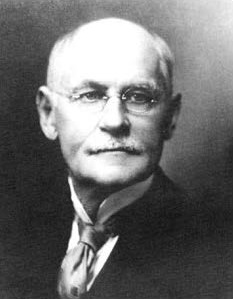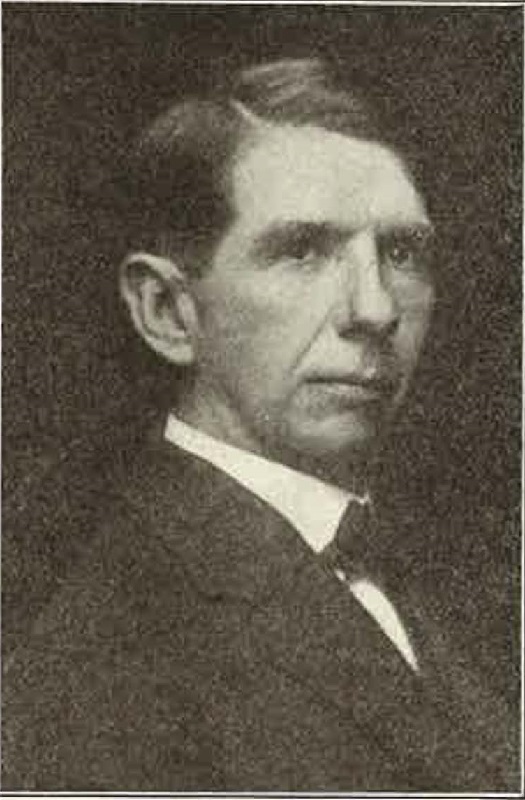Preserving a Dying Generation: Tennessee’s Veteran Questionnaires and Civil War Memory
ECW welcomes guest author Riley Sullivan
In July 1913, over 50,000 Union and Confederate veterans converged once again on Gettysburg. The semicentennial celebration of the Civil War’s climatic battle was highlighted by former enemies embracing one another at the famed “Bloody Angle.” Famously, President Woodrow Wilson commemorated the occasion by stating “we have found one another again as brothers and comrades in arms, enemies no longer … the quarrel forgotten.”[1] This sentiment of reconciliation reverberated across the nation. To Americans of the early 20th century, these veterans represented their version of the greatest generation. However, this generation was dwindling, and their memories would die off with them. To ensure that their voices would be preserved for the historical record, two archivists from the state of Tennessee issued a series of questionnaires to preserve a “true history” of the conflict.[2]
From 1914 to 1922, Tennessee state archivists Dr. Gustavus W. Dyer (an economics and sociology professor at Vanderbilt University) and John Trotwood Moore (a well-known southern poet and fictional writer) collected over 1,600 questionnaires for the Tennessee State Library and Archives documenting the wartime experiences of Tennessee’s Civil War generation. Collectively known as the Tennessee Civil War Veterans Questionnaires, these questionnaires provide valuable insights into the Volunteer State’s Civil War veterans.[3]

Constructing questionnaires that predate similar projects like the Tennessee World War One Veteran Questionnaires, one which Moore helped compile, Moore and Dyer were attempting to preserve the voices of a dying generation while modernizing the Tennessee State Archives.[4] However, while trying to enrich archival material, they were also attempting to fill the historical archive with primary source materials that were influenced by Lost Cause rhetoric. By the time Dyer and Moore embarked on this project, the historical community at large had adopted a “scientific” approach to constructing historical narratives, one that increasingly drew from the reliance of primary source material.
Up to this moment, early Lost Cause writers like former Confederate general Jubal Early were able to make their arguments resonate with the southern population by using primary source material and statistics as evidence. It was through these effective means that noted Civil War memory historian David Blight wrote that Early’s “principal aim was not only to vindicate Southern secession and glorify the Confederate soldier, but also to launch a propaganda assault on popular history and memory.”[5] This proved an effective campaign as Civil War history by the semicentennial replicated many of the tenants of the Lost Cause mythology. However, to further advance the myth, both Dyer and Moore sought through their archivist positions to directly impact what was stated in the primary source material.

Originally conceived in 1913 by Dr. Gustavus W. Dyer, the Tennessee Civil War Veterans Questionnaires were meant to be a comprehensive study of the Old South and Tennessee’s Civil War generation. The project was meant to reach all social classes and groups of Tennessee Civil War veterans, including Union and Confederate. Initially, the project was Dyer’s effort to expand on a previous project he had constructed in his 1905 monograph Democracy in the South Before the Civil War, one where Dyer conducted interviews with twenty-five Civil War veterans from Virginia to examine life within the antebellum South.[6]
However, before Dyer could complete the project, he was terminated as state archivist in 1915. The work was not dormant for long as John Trotwood Moore rediscovered the abandoned project (the exact conditions in how Moore discovered the questionnaires are unknown). Over the next several years, Moore sought to complete the project by going on a massive advertising campaign that included sending questionnaires to known veterans, requesting them to provide him with addresses of any veterans they knew, and with two project advertisements in Confederate Veteran.[7] Through his tireless efforts, Moore collected the majority of the questionnaires now housed at the Tennessee State Library and Archives that reached, perhaps, most of the living Tennessee veterans.

For their efforts, Tennessee’s veterans responded enthusiastically to questions regarding their lives before, during, and after the conflict. Questions ranged from issues concerning education, property, and social status before the war to their wartime experiences. Through asking such questions, the archivists also including one that stated, “Were you a Confederate or Union soldier,” attempting to demonstrate the common experiences of Tennessee Union and Confederate veterans alike.[8]
By doing such, they wanted to promote a sense of white Southern unity amongst all living Tennessee Civil War veterans. Historian Anne E. Marshall addressed this topic of white Southern unity in the face of Reconstruction-era policies extensively in her work Creating a Confederate Kentucky. In her words, “Union memory … became too closely associated with emancipation and African American progress for white Unionists to accept it as their own,” thus, prompting many Kentucky Unionists to “secede” after the conflict and follow the Lost Cause.[9] Therefore, when applying this theory to the questionnaires, it is safe to conclude that Dyer and Moore were attempting to appeal to Tennessee’s disgruntled Union veterans by promoting a sense of white solidarity through the recollection of their antebellum, wartime, and Reconstruction experiences; regardless of class or side in which one took during the conflict. By doing this, in their words, they sought “to bring out facts that will be of service in writing a true history of the Old South.”[10]

Effectively, what Dyer and Moore were attempting to do was challenge northern writers who, as veteran Andrew Burris White wrote, “published [histories] since the war” that “lied and slandered people and veterans of the south.”[11] Even Dyer concurred with this point when constructing a similar project ten years earlier, when he stated “the South would be greatly benefited, if much that has been written in histories and other books and periodicals concerning the South…were consumed [into] flames.”[12] All of this was done to manipulate the historical record around the prevailing southern myth of the Lost Cause.
Remarkably, even with such enthusiasm to promote such rhetoric, the impressive archival material that Dyer and Moore constructed has largely gone untapped by historians, with the sole exception being Fred Arthur Bailey’s Class and Tennessee’s Confederate Generation.[13] However, while these materials prove to be valuable sources for discussing social, political, economic, and military issues of the Civil War and surrounding eras, one must be cautious in examining these accounts. In one account, Jesse Harrison Green, who served with the 9th Tennessee Infantry Regiment, admitted there were “lots of things I have almost forgotten” about the war.[14] Through this quote it is important to recognize how fifty years of time and subsequent events can greatly hinder how these veterans recalled their service. Therefore, the questionnaires themselves present a more comprehensive study of historical memory rather than first-hand accounts to reconstruct battlefield narratives.
Riley Sullivan earned his MA in History at Sam Houston State University and is a Professor of History at San Jacinto College in Pasadena, TX. He has published works on Civil War Memory that have appeared in the Tennessee Historical Quarterly.
Endnotes:
[1] United States President. Speeches of Woodrow Wilson. [Brooklyn, N.Y. Brooklyn daily eagle, 1915] Pdf. https://www.loc.gov/item/21016582/. Pg. 10.
[2] Gustavus W. Dyer, and John Trotwood Moore, Tennessee Civil War Veterans Questionnaires, Edited by Colleen Morse Elliott and Louise Armstrong Moxley, (Easley, SC: Southern Historical Press, 1985), xi.
[3] Ibid, 1-258.
[4] The questionnaires are comparable to the WPA Slave Narratives that were produced by the Works Progress Administration during the 1930’s as they are both rich in detail. However, there is no know connection between the two. Manuscript Division, Library of Congress and Prints and Photographs Division, Library of Congress. Born in Slavery: Slave Narratives from the Federal Writers’ Project, 1936-1938. (Washington, D.C: Library of Congress, 2001).
[5] David Blight, Race and Reunion: The Civil War in American Memory, (Cambridge: Harvard University Press, 2001), 79.
[6] Gustavus W. Dyer, Democracy in the South Before the Civil War, (Nashville, TN: Publishing House of the Methodist Episcopal Church, South., 1905).
[7] “Tennessee Soldiers of the Confederacy,” Confederate Veteran 30, (March 1922), 84 and (April 1922), 122.
[8] Dyer and Moore, Tennessee Civil War Veterans Questionnaires, xv.
[9] Anne E. Marshall, Creating a Confederate Kentucky: The Lost Cause and Civil War Memory in a Border State, (Chapell Hill, NC: University of North Carolina Press, 2010), 5
[10] Dyer and Moore, Tennessee Civil War Veteran Questionnaires, xi.
[11] Ibid, 2171.
[12] Dyer, Democracy in the South, 17.
[13] Fred Arthur Bailey, Class and Tennessee’s Confederate Generation, (Chapel Hill: NC, University of North Carolina Press, 1987); Riley Sullivan. “The Battle for the Historical Record.” Tennessee Historical Quarterly 82, no. 1 (2023): 30-55.
[14] Dyer and Moore, Tennessee Civil War Veterans Questionnaires, 951.
“Lost cause rhetoric”? Still trying to deny the truth of lived experience from people who were actually there, which you weren’t.
I have encountered similar questionnaires issued from the Association of Survivors of the Confederate States Navy that were created about the same time. I wonder if other states or organizations did something similar for their Civil War veterans.
Sounds like some folks were SWIF-boating Confederate veterans at an early stage.
Tom
thanks for this interesting piece … reading the questions, this survey seems more an attempt to characterize the social/cultural hierarchy between slaveholders and non-slaveholders as opposed to collecting the experience of vets … the survey has 46 questions and only 5 address the veteran experience.
Let’s tread lightly when assigning fallacious 21st century political tropes to men who were born nearly 200 years ago. Southern men did not join the Confederate army to fight for slavery – after all, only 7% of Southerners owned slaves, and six slave states remained in the Union that never took their slaves away whilst supposedly fighting to end slavery – and the “Lost Cause” that was supposedly invented following the war was, miraculously, endlessly discussed in speeches, editorials and books from the 1820s onward. Nor did they sit around following the war musing on how to establish “white supremacy,” a concept that wasn’t invented until the next century.
The Tennessee Questionnaires were far from being a glorification of the “Lost Cause”. They were mailed to Veterans from both sides. Over 100 Tennessee Union Veterans returned them.